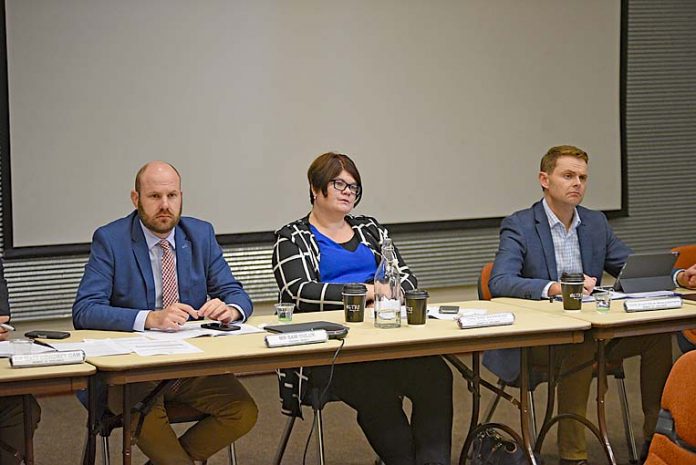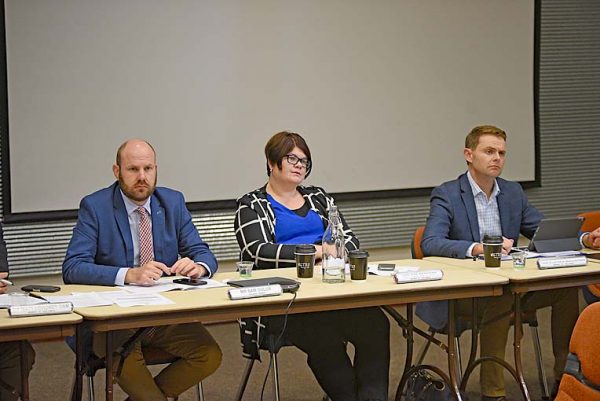

LANGUAGE barriers and a lack of viable transport were among the key issues facing migrants in the South East aired at a Parliamentary committee inquiry at Mount Gambier City Hall yesterday.
Yesterday’s session formed part of a statewide inquiry into the economic contribution of migration in South Australia and followed a similar meeting held in Penola on Tuesday.
The seven-member committee listened to stakeholders from Mount Gambier who identified language barriers and transport as two of the main challenge areas.
Speaking at the inquiry, Mount Gambier City Council growth general manager Judy Nagy said the two challenges go hand in hand.
“Mount Gambier is the service centre for most of the region, so for our migrants working outside of the city, they have to travel here to have access to services and programs,” Dr Nagy said.
“The only place to learn to speak English (in the South East) is in Mount Gambier, so that means we have inexperienced migrant drivers, driving long distances to access those services.
“There’s no other form of transport and it is just not safe – kangaroos are a case in point.”
However, Ms Nagy said these programs and services – particularly in relation to language – are crucial for all migrants.
“We need conversational type programs, because even simple labouring jobs require employees who can carry a conversation,” she said.
“English is a big barrier whether you’re a skilled or unskilled migrant.”
Anelia Blackie – from the Migrant Resource Centre – provided a specific example in the health system where language had been a challenge for migrants.
“We have had migrants who have visited a GP who have then been referred to a specialist in Adelaide or interstate where they have then had to organise accomondation and transport,” she said.
“When they returned they found out they would not be covered because there were actually specialists available in Mount Gambier, however those specialists had refused to use phone translators.
“They were qualified to do so, however would not, so there is a breakdown in the system somewhere.”
Dr Nagy highlighted a lack of funding for the Migrant Resource Centre one major constraint in delivering programs and services.
“They need funding so they can provide localised programs,” Ms Nagy said.
“It would be great if they could get on with just doing their job rather than having to jump through hoops all the time just to get that funding.”
When asked what her one message to policymakers would be, Ms Blackie agreed an increase in resources was critical.
“We are burnt out … our funding is being cut all the time,” she said.
While the challenges for migrants are obvious, Holla Fresh managing director Ian Lines said his business would struggle to survive without them.
“One third of our employees are migrants – the horticultural industry relies on them,” he said.
“They are all good workers, we still have staff from families who were part of the first intake six to seven years ago.”
While Mr Lines admitted his business was one of the success stories for migrants, he wished it translated into a larger economic benefit for his hometown of Tantanoola.
“We’re losing people in these areas because we do not have the services to provide to them in these small towns,” he said.
“I feel like we lose people to Mount Gambier and they lose people to Adelaide.
“There’s no real resistance or barriers for these migrants other than a lack of resources.”







